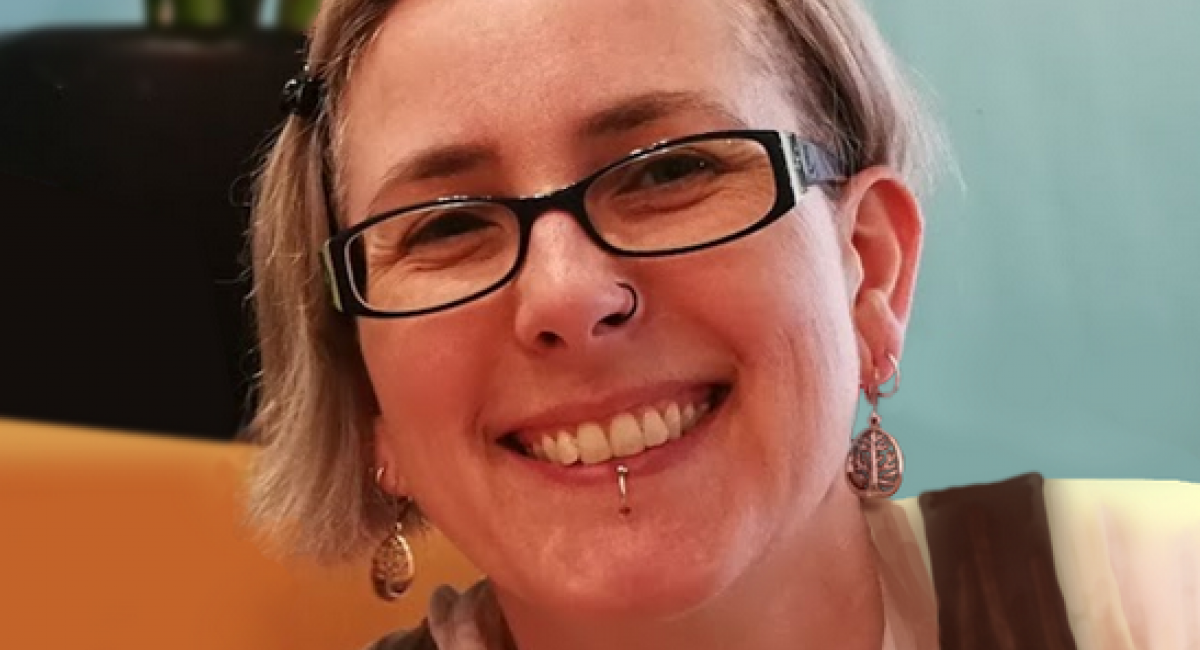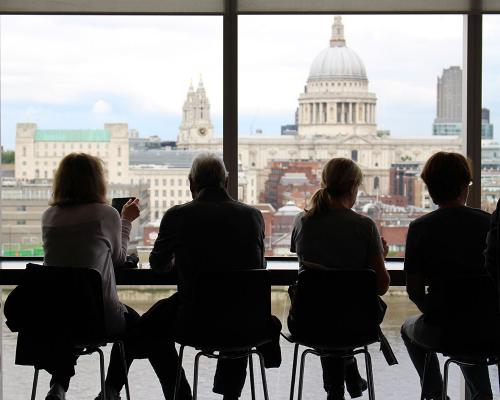Music to my ears
Working as a therapist is rarely a first career and is often the result of a mid-life change of track. Here Kat Marlow relates her particular path through the diverse careers of orchestral musician and process engineer, as well as her own mental health challenges, to her current role as HG practitioner and DWP trainer.
As with so many people, training to become a therapist has come in later life, as a third career. My early years were dominated by music – keyboard and woodwind – and by the time I hit my early teens I'd completed my formal training in both, and secured a place in the Birmingham Schools Symphony Orchestra. I went on to study for an Honours degree in Music at the University of Liverpool with a view to undertaking a postgraduate diploma in music therapy.
Lack of funds prevented this, and led me to a graduate placement with a UK car manufacturer working in systems development, with a view to gaining some experience and making enough money to continue with music therapy. However, where this actually led me was into a successful twenty year career in process engineering that was both a blessing and a curse.
I enjoyed many aspects of process engineering. It gave me the opportunity to coach and mentor, get into the nuts and bolts of large and complex processes, understand where they weren't meeting the needs of the organisation, and help to improve them. I worked with individuals on the assembly line, on the executive team, and in significant business transformation activities.
However this demanding job involved 12 hour days week in week out, and with two young children and a husband at home who I never saw, I crumbled. It was not the shock of planning my own suicide that finally made me realise that there was something very wrong, but a seemingly insignificant occurrence at work that left me unable to continue (the straw that broke the camel’s back). Thankfully I was still able to get myself to a place of safety and contact my wonderful GP, who saw me immediately, diagnosed chronic severe depression and generalised anxiety, and started me on the road to recovery.
Part of recovery was realising that my career wasn't healthy and didn't give me what I needed. With the love and support of my husband, family and close friends and with the help of an excellent CBT therapist, I healed and began to explore what I really needed. It was my own experience of therapy that inspired me to want to help others who found themselves in a similar position, and my third career began with being accepted as a volunteer listener for the Samaritans.
This gave me an excellent grounding in the basics and confirmed that my future lay in a career where I could help people explore their current situation and move forwards towards a healthier and more fulfilling future. In 2015 I was accepted onto the integrative foundation degree course in counselling at the University of Leicester and, at around the same time, was introduced to the Human Givens Approach by a dear friend and life coach, who thought it might interest me.
 Joe Griffin’s course on How to Break the Cycle of Depression was indeed music to my ears, which inspired me to make HG my chosen approach and heralded two years of juggling work, volunteering and study of both my degree and the HG Diploma. As I entered my third year at University it became necessary to reduce my working hours such that I could undertake placement, and to step away from my role with the Samaritans – a difficult but necessary decision as I was beginning to feel over-stretched.
Joe Griffin’s course on How to Break the Cycle of Depression was indeed music to my ears, which inspired me to make HG my chosen approach and heralded two years of juggling work, volunteering and study of both my degree and the HG Diploma. As I entered my third year at University it became necessary to reduce my working hours such that I could undertake placement, and to step away from my role with the Samaritans – a difficult but necessary decision as I was beginning to feel over-stretched.
In November 2018 I completed the HG Diploma Part 3, in only the second iteration of the new week long practitioner assessment. All the while, I wondered how I would move from my career in process engineering into psychotherapy whilst maintaining an income. My opportunity finally came in January 2019, when a redundancy package afforded me some financial breathing space to get my therapy practice up and running.
After a much needed breather, I began my HG private practice, Positive Change Forever, in earnest and – just as my very honest and supportive HG supervisor told me it would be – it was hard work to get going. Persistence and good fortune secured me work as an associate trainer delivering mental health, behaviour and wellbeing training for the DWP (Department of Work and Pensions), which provided good experience, a regular income, and hours that I could dovetail with private client sessions.
February 2020 saw my practice reach a sustainable level, with about a third of my income coming from private work, and two thirds from training.
Then came the Covid-19 global pandemic.
All training was cancelled and the majority of my clients requested that their sessions be put on hold despite the offer of online or phone therapy. The harsh reality was that many people were uncertain about online therapy, or struggled to find the space to have a private conversation whilst in lockdown with the rest of their household. Others were simply focusing all of their attention on the daily uncertainty of an unprecedented situation, with no end in sight.
I admit that those first few weeks were difficult, with little of my financial cushion to fall back on and virtually no income. In survival mode, I focused my attention on getting my own needs met, supporting my husband as he adjusted to working from home and helping my kids (now 11 and 15) to navigate school work through lockdown. Introducing daily exercise, guided imagery and qigong practices helped me manage my own, at times overwhelming, anxiety.
Whilst in lockdown I undertook a certificate in online counselling (through Counselling Tutor) which definitely made me think about how to make it work, with considerations such as lighting, camera placement, cyber security and the changes in dynamics between therapist and client.
Building on connections I have with two local charities has brought steady referrals, and I took the opportunity to invest some time in social media, increasing my profile on counselling directories and through my website, all of which has helped to increase client numbers.

Adjusting to ‘on screen’ and ‘on phone’ work has been a learning curve, with pros and cons, although my time with Samaritans has definitely been an advantage. Not all clients are happy to do face-to-face online sessions, preferring to use the phone, and obviously this limits what we can do to a certain extent. In these instances, I emphasise psychoeducation, metaphors and stories, and make even more use of therapeutic language, finding ways to activate the client’s imagination and backing this up with guided imagery recordings for the client to use between sessions.
Underpinning all of this has always been to help clients to understand their emotional needs and how they can get them met in healthier ways using their innate resources, replacing strategies that are no longer accessible to them due to changes in circumstances that they could never have imagined or planned. Lockdown has definitely presented a lot of people with some significant challenges in this respect, and it's been interesting to see just how much we can still achieve within the limited time frame of a session and without ever actually meeting.
Figuring out how to make guided imagery work with potentially unstable internet connections has probably been the greatest challenge of all. There have been freezes, hang ups and all manner of on-screen delays, but despite technical glitches and internet hitches, sessions have been just as effective. The only thing I haven't ventured to use online is the rewind technique,* largely due to the risk of losing connection midway through, so I've been looking at other ways of using guided imagery to help clients to loosen trapped traumatic memories, and rehearse new ways of experiencing situations that have been previously distressing to them, with very positive results.
As lockdown lifts (and with the possibility of it returning in various ways) I shall keep my practice largely online and over the phone, although I have put measures in place to enable me to see clients in person for one-off sessions so that we can make use of the rewind technique when required.
What's been clear throughout this experience is that the Human Givens approach provides a fast and effective way of helping people get back to being their best, and is flexible enough to tolerate some of the challenges that a pandemic presents. Having to adapt to remote working offers the opportunity to work with a much more geographically diverse group of clients than I could ever reach in person. I feel confident that I can still deliver effective Human Givens therapy that provides my clients with the right support to help them better get their needs met during these challenging times.
* Please note: All HG Therapists are expected to follow the HGI’s online therapy guidelines.
© Kate Marlow, August 2020
Latest Tweets:
Tweets by humangivensLatest News:
HG practitioner participates in global congress
HG practitioner Felicity Jaffrey, who lives and works in Egypt, received the extraordinary honour of being invited to speak at Egypt’s hugely prestigious Global Congress on Population, Health and Human Development (PHDC24) in Cairo in October.
SCoPEd - latest update
The six SCoPEd partners have published their latest update on the important work currently underway with regards to the SCoPEd framework implementation, governance and impact assessment.
Date posted: 14/02/2024












